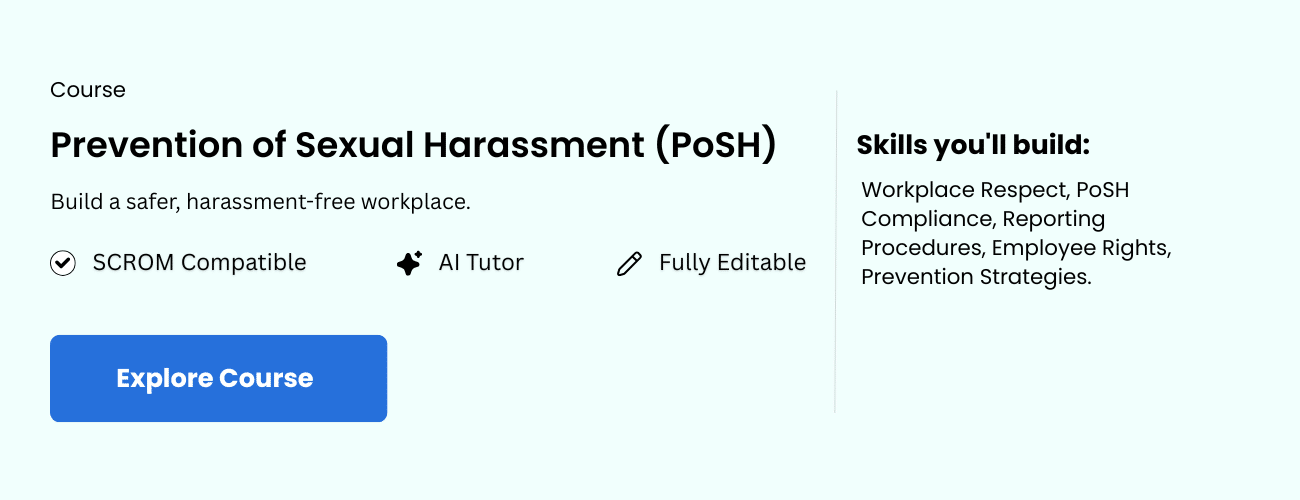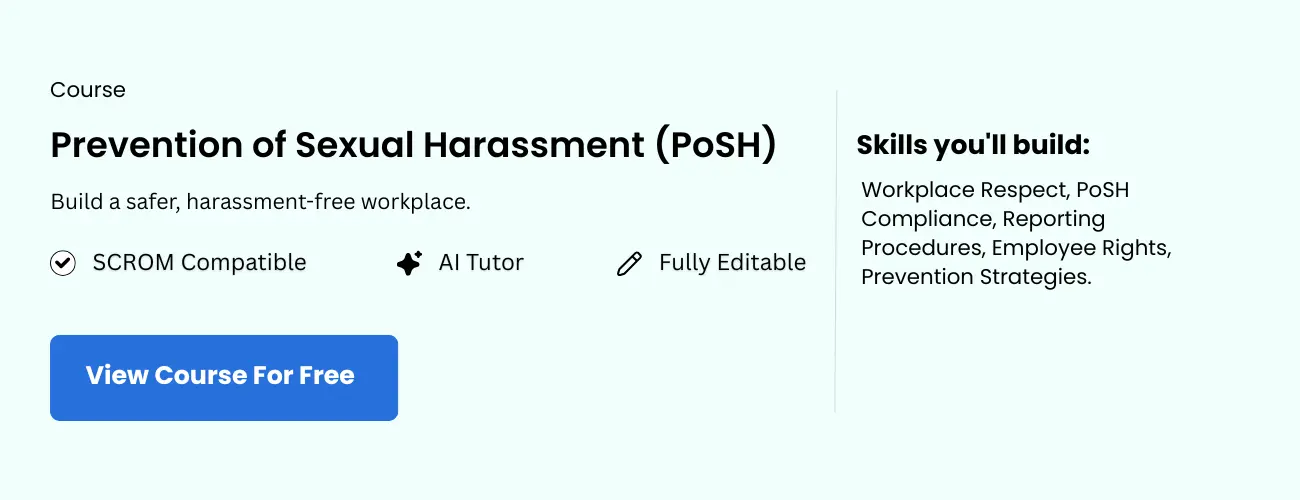
THANK YOU
FOR YOUR INFORMATION
One of our expert will be in touch with you…

In today’s professional environment, ensuring a safe and respectful workplace is not only a moral obligation but a legal one. POSH training for employees—based on the Prevention of Sexual Harassment (POSH) Act—is a crucial component in promoting workplace ethics and compliance. This comprehensive guide dives into what POSH compliance training entails, why it matters, and how to implement an effective POSH training program in your organization.
The POSH Act, introduced in India in 2013, mandates that every employer must take active steps to prevent and address sexual harassment in the workplace. This includes forming Internal Committees (IC), educating staff, and taking disciplinary action when necessary. A robust POSH framework not only complies with legal standards but also reinforces ethical workplace behavior, boosting employee confidence in organizational culture.
Must Read: What is POSH training?
A successful POSH training program must be well-structured, interactive, and inclusive. Here are the vital components that contribute to long-term success and awareness:
Different departments and roles face unique challenges. POSH training should be tailored to address these varied experiences across hierarchies. Supervisors and HR professionals, for instance, require deeper knowledge on handling complaints sensitively and lawfully.
Using anonymized case studies makes training more relatable and memorable, helping employees grasp both the consequences and importance of following POSH guidelines. These examples also provide practical applications of policies and demonstrate appropriate responses.
Quizzes and scenario-based evaluations ensure knowledge retention and can identify areas where more education is required. Interactive learning tools also foster engagement, making the content more accessible and easier to digest.
Must Watch: 5 Best POSH Training Courses for Employees in India

As per the law, employers must:
You can measure the success of your POSH compliance training using:
The digital age offers new avenues for delivering effective POSH training. From eLearning platforms to gamified modules and virtual workshops, organizations can scale training and make it more engaging. AI-based microlearning platforms further improve learning through personalized and adaptive content.
An inclusive POSH training strategy ensures that content is relatable and respectful to diverse employee backgrounds, including gender identities, socio-economic statuses, and language preferences. Multilingual modules and accessible formats like videos, audio, and visual aids improve comprehension across varied employee bases.
Leaders and managers set the tone for organizational behavior. When leadership teams champion POSH principles, employees are more likely to take compliance seriously. Incorporating POSH KPIs in leadership performance reviews ensures accountability from the top-down and drives cultural change.
POSH training for employees is not just about compliance; it’s about fostering a culture of respect, dignity, and accountability. An effective POSH training program not only educates but also empowers. By investing in POSH compliance training, companies show their commitment to creating a safe and inclusive environment where every employee can thrive.
Implement POSH training today and lead the change towards a respectful and compliant workplace.
All employees including interns, contractors, and consultants should undergo POSH training, with specialized modules for managers and Internal Committee members.
At least once a year. However, regular refresher courses and onboarding sessions for new hires are also recommended.
Yes. POSH training must include all employees, regardless of whether they work remotely, on-site, or in hybrid environments.
Non-compliance can lead to penalties, cancellation of business licenses, reputational damage, and potential legal action.
Absolutely. Many organizations leverage digital LMS platforms to deliver interactive, on-demand POSH compliance training efficiently.